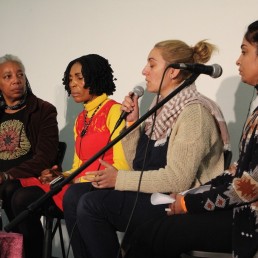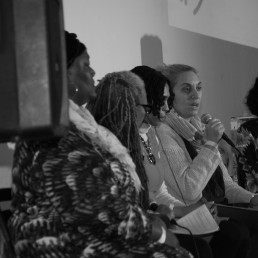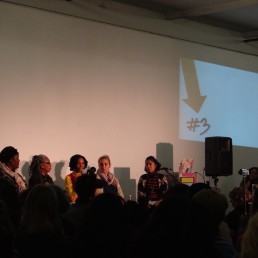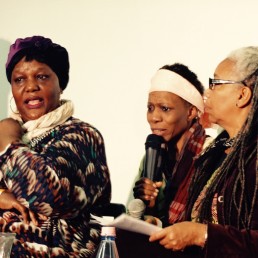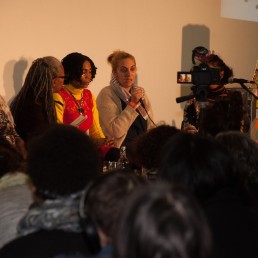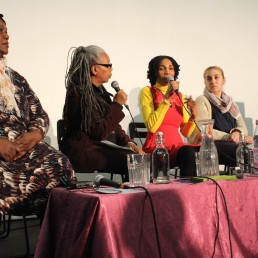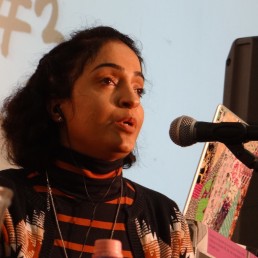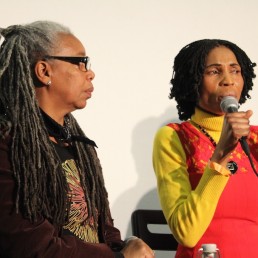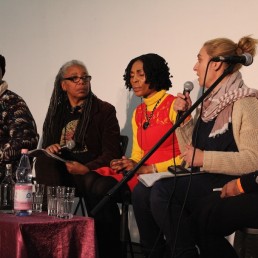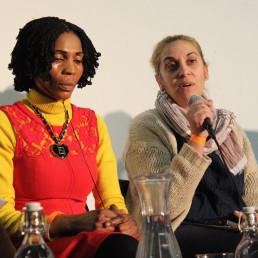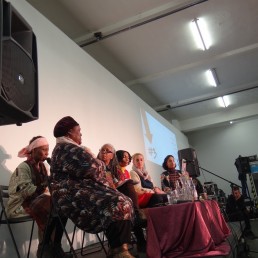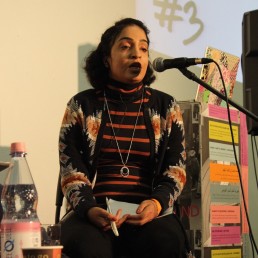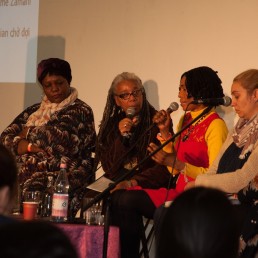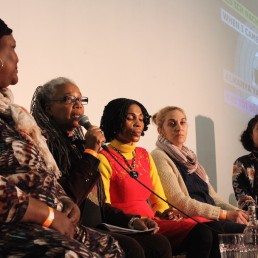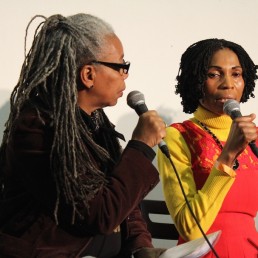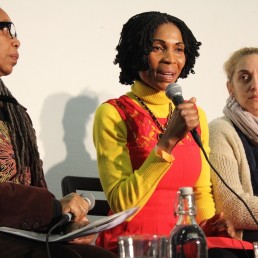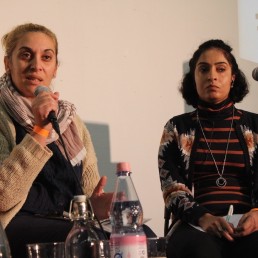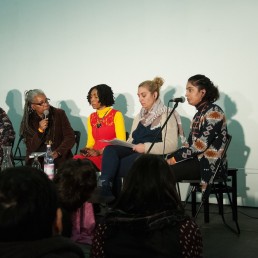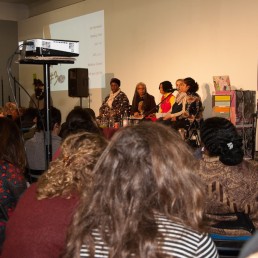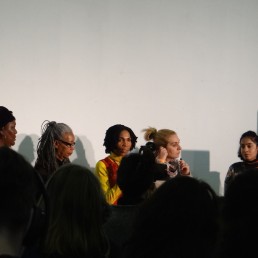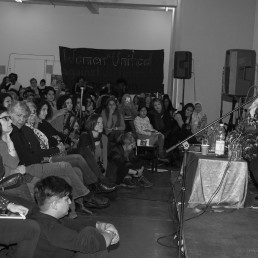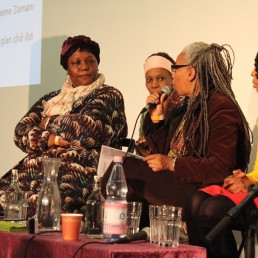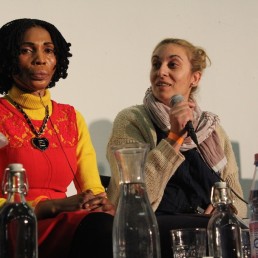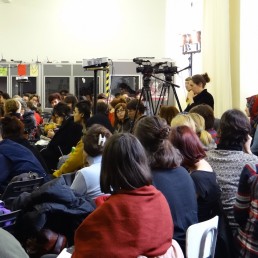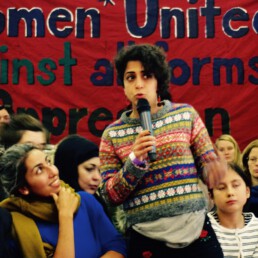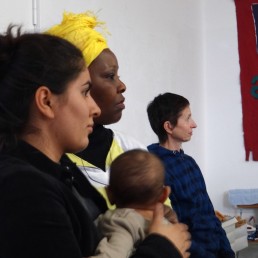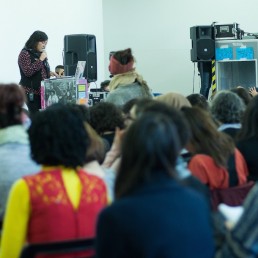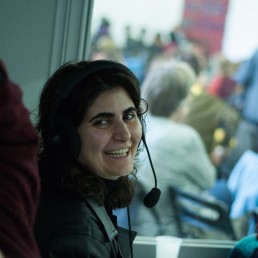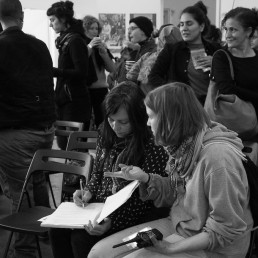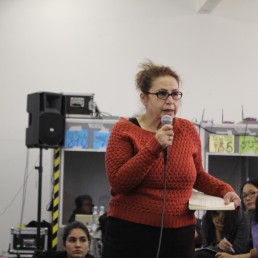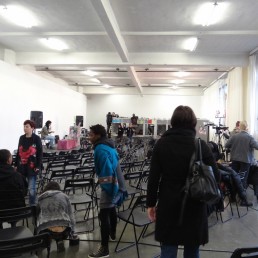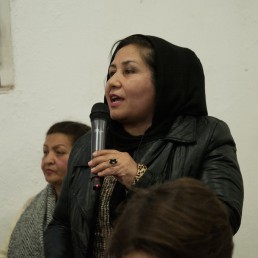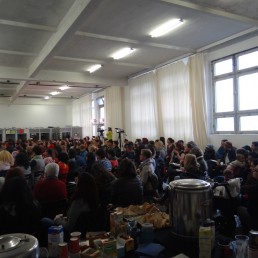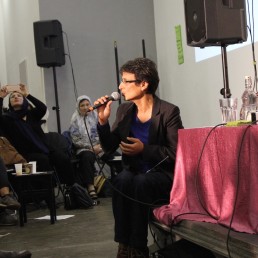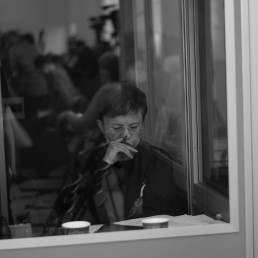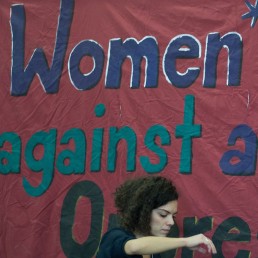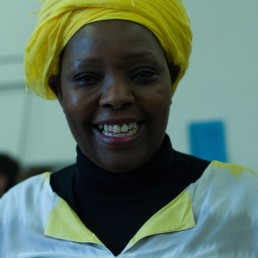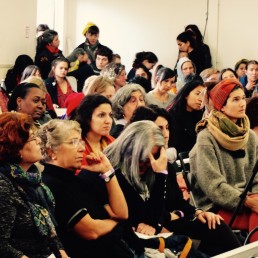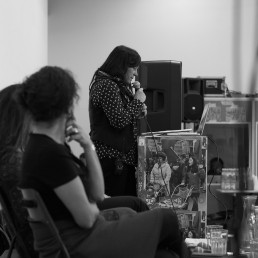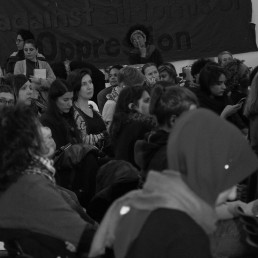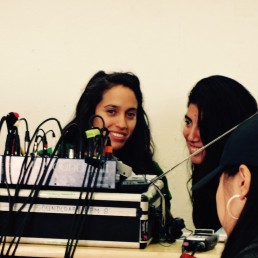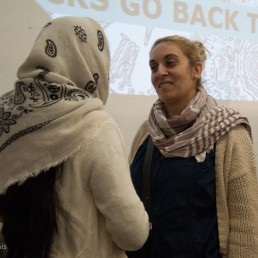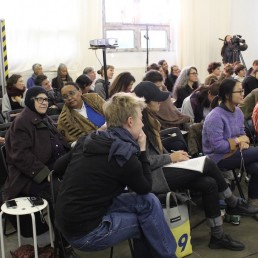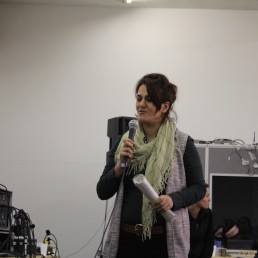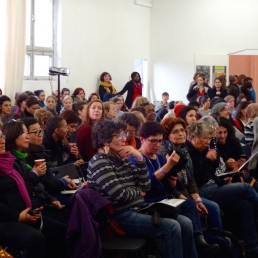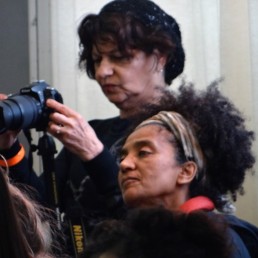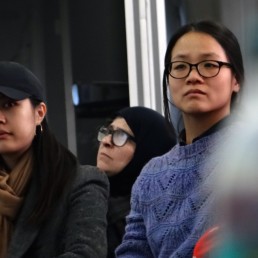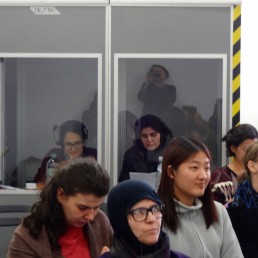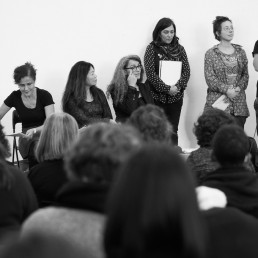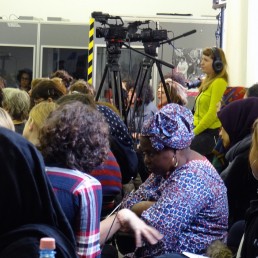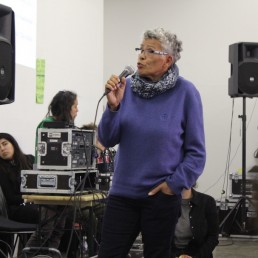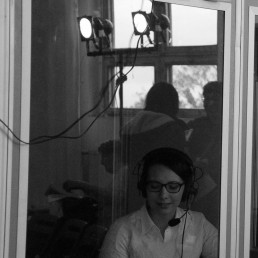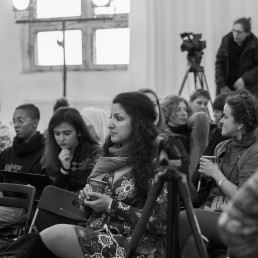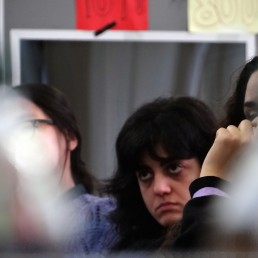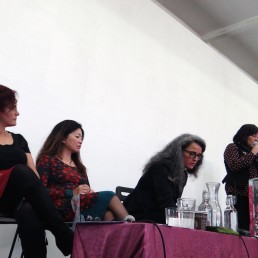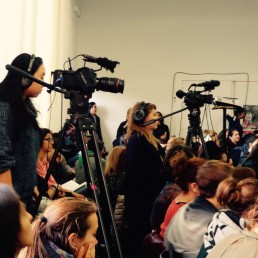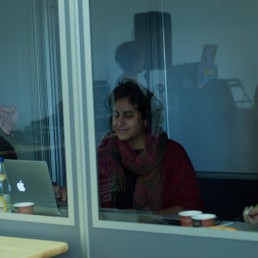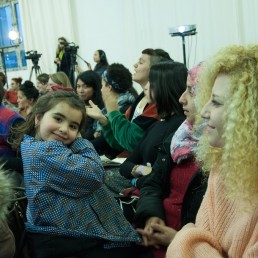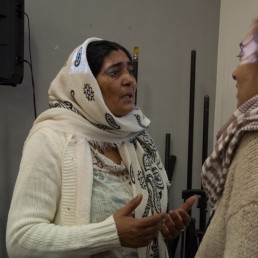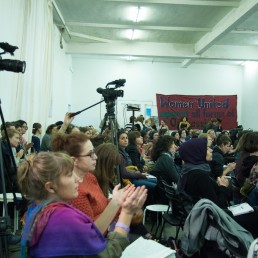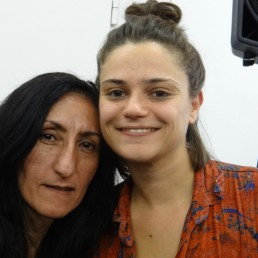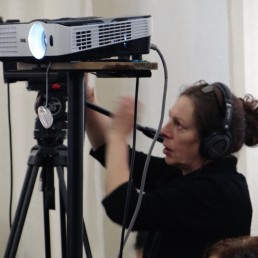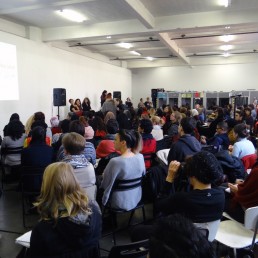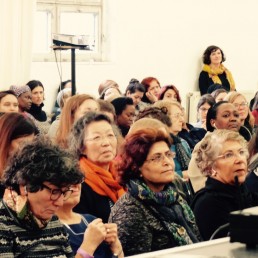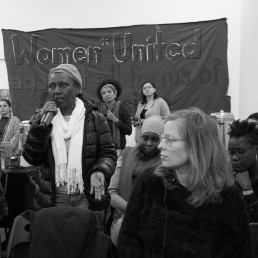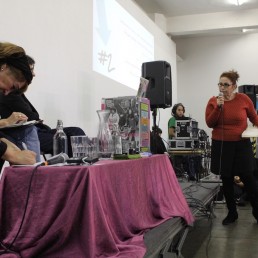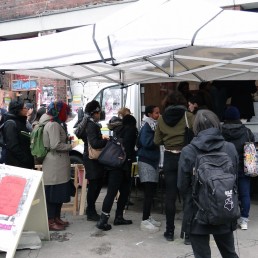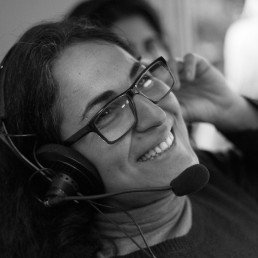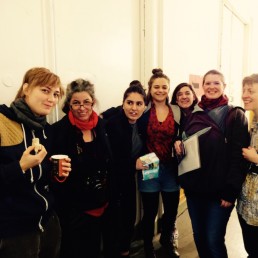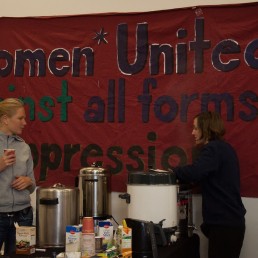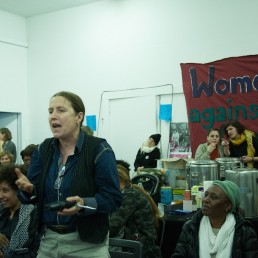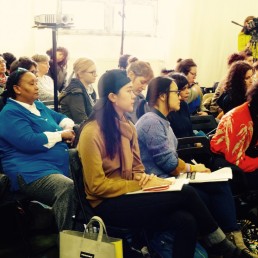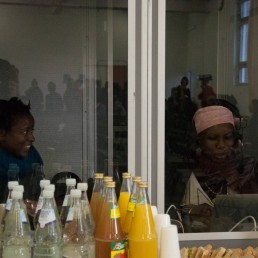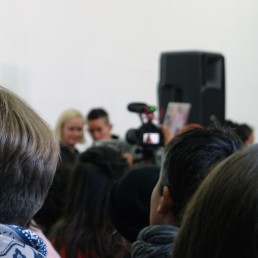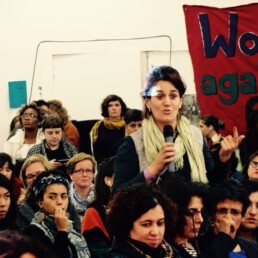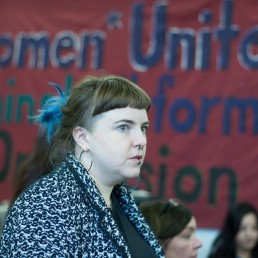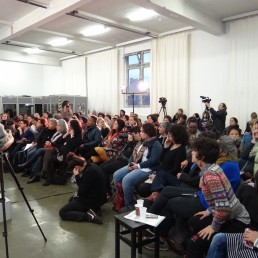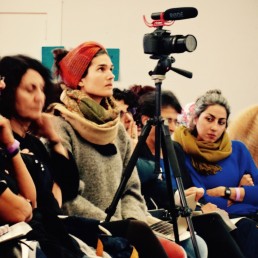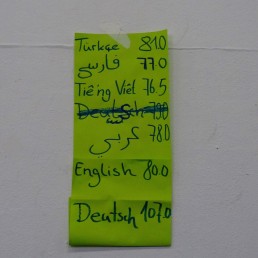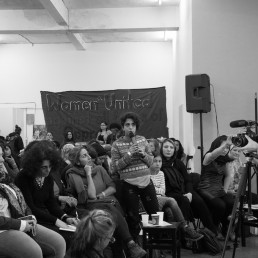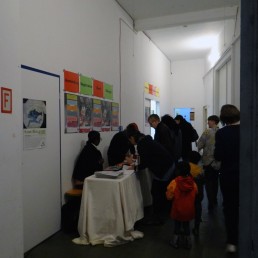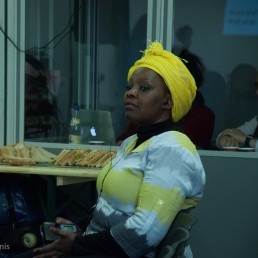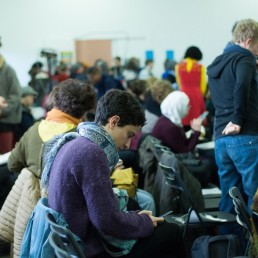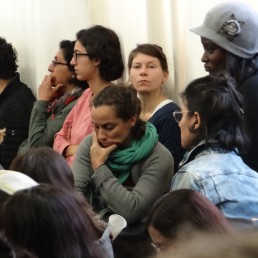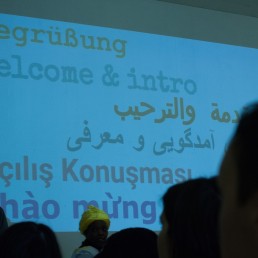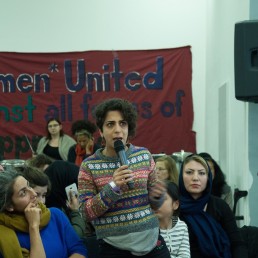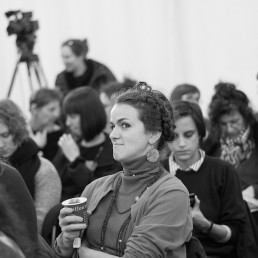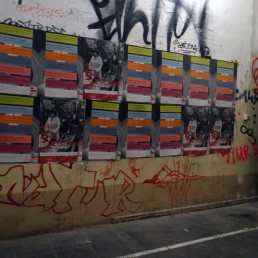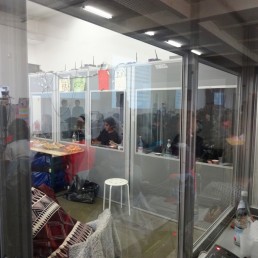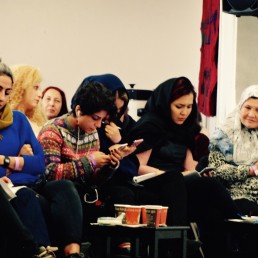Waiting Time - Surviving the German Asylum System
Conference | When I came to Germany | October 2017 | Berlin
ConferenceWhen I came to GermanyOctober 2017 | Berlin
Four refugee women will speak about their experiences with the asylum process in Germany, the constant risk of deportation, and the power of resistance and self-organization.
The video can be downloaded on Vimeo. See license below.
Photos of the Panel
SPEAKERS & MODERATOR
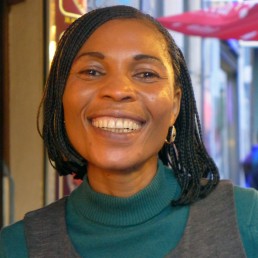
Doris Messa fled to Germany 6 years ago and has been under threat of deportation ever since. She has already successfully defended herself against two deportation attempts. In the middle of the night in September 2016 she was violently removed from her refugee accommodation and brought to the airport. This forced deportation was prevented because the pilot of the airplane refused to take Doris in her condition. Doris decided to join forces with other women in similar situations and became an activist in International Womenspace.
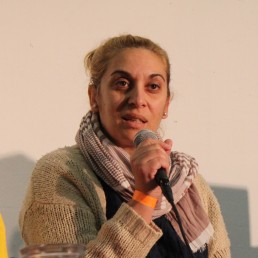
Ivanka Sinani, 42, is a Roma activist from Serbia. She is a mother of three children and lives in Münster. From 1995 to 2003 she lived in Germany as a refugee but had to leave Germany „voluntarily“ in 2003. Today she works with youth on the topic of discrimination against Roma and refugees.
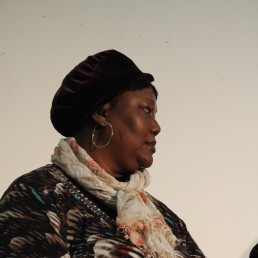
Jacqueline Maffo is a co-founder of Women in Exile e.V. and the Intercultural Women’s Group in Potsdam. Jacqueline is from Cameroon and has lived in Potsdam since 1995. Together with five other women she founded the association Women in Exile e.V. As a representative of the women in Potsdam, she has organised and mobilized for many events and demonstrations. Six years ago she founded the „Interkulturelle Frauengruppe“ (Intercultural Women’s Group) in Potsdam. For the members of this group it is important that women with children can come together to organise, solve their problems and support one other. The group is also intended for the children to get to know each other and their cultures, and to learn to share with one another. Jacqueline’s aim is that every women feels encouraged to speak, to be free, to state her opinion and to be an important part of society.
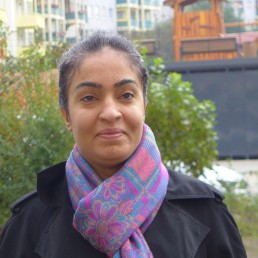
Masture Hares came to Germany in 2010 and in the same year was granted asylum. In Afghanistan, she has worked as a journalist as well as a political activist in different women’s organizations fighting against forced and early marriage. She has worked closely with Malalai Joya, the former Parliamentarian for the National Assembly of Afghanistan. Because of her involvement in the women’s rights struggle, she was heavily persecuted by Warlords and had to flee the country.
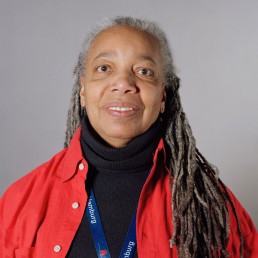
Asma-Esmeralda Abd’Allah-Álvarez Ramírez is a black, queer, transcultural activist. As a native Cuban she arrived with her parents in Germany at the age of six. Among other things, she has worked as a translator and cultural mediator. Most recently, she worked as a counsellor at the refugee office of Kargah e.V. She is active in the Initiative of Black people in Germany (ISD) and at Radio Flora.
Images from the panellists
About the conferenceWhen I came to Germany
International Womenspace organised a two-day conference in Berlin in October 2017. There were six-panel discussions focusing on the experiences of women who came to West Germany as guest workers, to East Germany as contract workers, as migrants and refugees to the reunified Germany and of German women who are affected by racism.
The invited speakers talked about and compared their experiences of arriving and settling in Germany as well as working and organising as women here. We wanted to put the knowledge of multiple generations of migrants into a historical perspective, and create a space where we can exchange our individual and collective experiences in order to counteract false ideas of victimhood related to migrant women, whose voices are too often ignored in German society due to racism, xenophobia and sexism.
We wanted to counteract the mainstream narrative. We did not only focus on the problems that migrant and refugee women, as well as German women who are affected by racism, are constantly confronted with. We also highlighted the many and various forms of women’s resistance; in the workplace, in society and against institutional oppression.
It was a success! We were very moved and inspired by the response to the conference, both before, during and after. On each day, over 250 women came together, exchanged experiences about political fights and resistance in Germany, learned from the histories of different generations from both East, West and reunited Germany, got to know each other, and built networks. This was made possible, despite language barriers, thanks to running translation in six languages: German, English, Arabic, Farsi, Turkish & Vietnamese. There was an atmosphere of openness and solidarity, so both speakers and participants were able to talk freely about their personal experiences.
Feedback from participants showed that an event like this was very needed, and that there is a strong wish for continued exchange, political action and networking. We consider the conference a starting point and look forward to the next steps…
Photos of the conference | day 1
LICENSE INTERNATIONAL
This work is licensed under a Creative Commons Attribution-NonCommercial-NoDerivatives 4.0 International License.
LIZENZ DEUTSCHLAND
Dieses Werk ist lizenziert unter einer Creative Commons Namensnennung – Nicht-kommerziell – Keine Bearbeitung 3.0 Deutschland Lizenz.
IW*S
International Women* Space is a feminist, anti-racist political group in Berlin with refugee and migrant women* and non-migrant women* as members.
